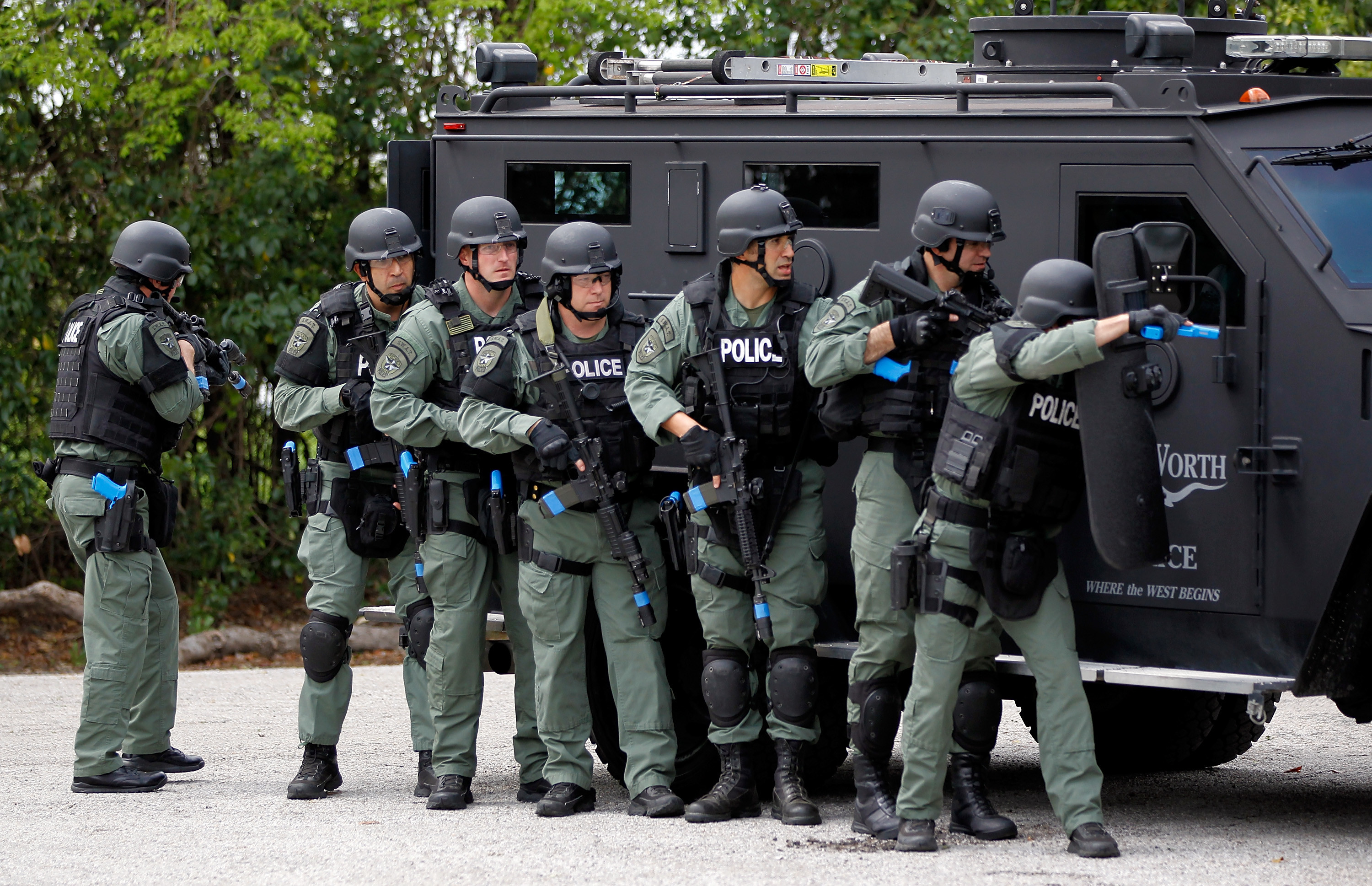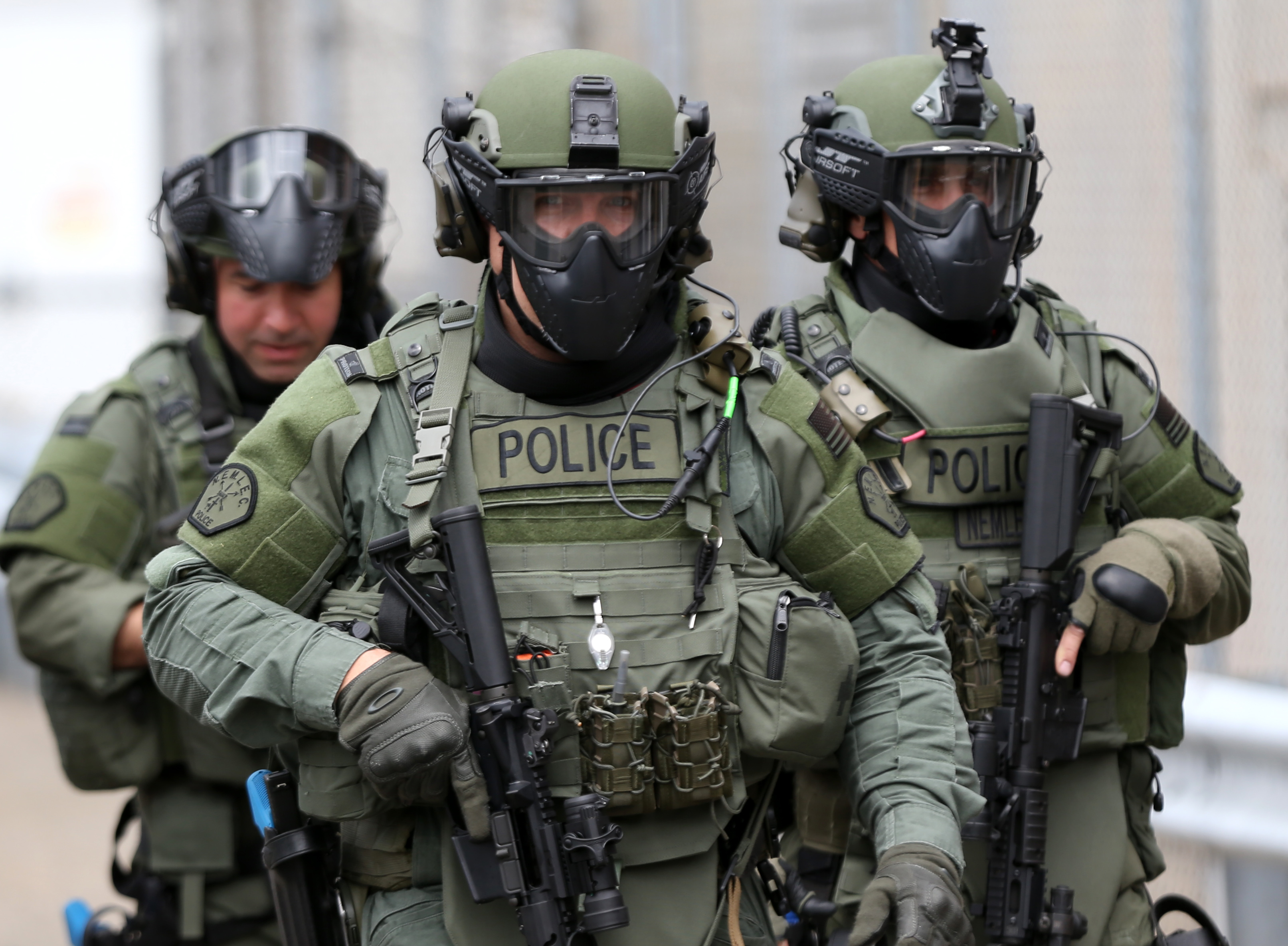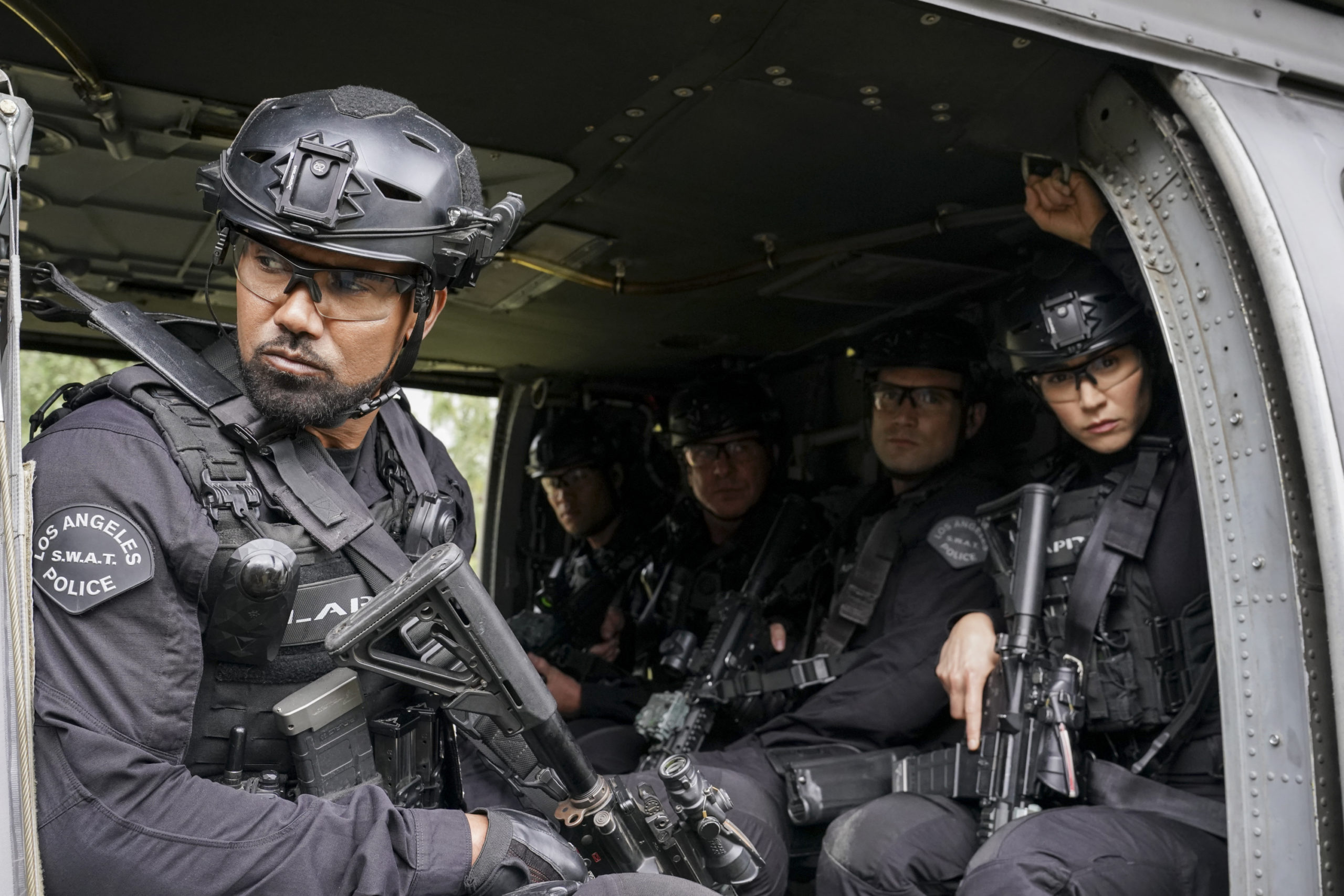When we think about police work, our minds often go to the everyday patrols, the officers responding to calls, and keeping neighborhoods safe. But, you know, there's another side to law enforcement, a group of people who take on some of the toughest situations imaginable. These are the specialized teams, folks who train relentlessly for moments when things get really intense, and the safety of many hangs in the balance. It's a calling that asks for a tremendous amount of focus and a deep sense of commitment, actually.
These specialized groups, like a SWAT team, are often the ones called in when things are truly serious, perhaps a situation with a person holding others against their will, or maybe a dangerous individual barricaded somewhere. They are the ones who prepare for the very worst, hoping it never comes, but always ready if it does. Their training is quite specific, focusing on methods and equipment that help them handle things safely, for everyone involved, you know.
Thinking about the spirit of service, a kind of "swat deacon" role emerges, representing dedication and a quiet strength within these teams. It's about serving the community in a way that sometimes means putting oneself in harm's way, but also about the support systems that surround these individuals and their families. This deep commitment, in a way, echoes through the stories of those who have given so much, and the ways communities choose to remember them.
Table of Contents
- Dan Marcou - A Lifetime of Service
- What Does a Specialized Police Team Do?
- The Physical Side - What's a SWAT Tryout Like?
- Supporting the Community - The Spirit of a SWAT Deacon
- How Do Changes in Policing Affect Specialized Units?
- Beyond SWAT - What About Other Specialized Teams?
- What Are the Requirements to Join a Police Force?
- The Human Element - Why Do These Teams Matter?
Dan Marcou - A Lifetime of Service
When we talk about people who have truly given their lives to public safety, Dan Marcou is a name that often comes up. He's someone who spent a long time, over three decades, working as a police officer. That's a lot of years, isn't it? He didn't just serve, though; he also held a very important position as a police lieutenant and a commander for a SWAT team. This kind of role means you're not just doing the job, but also leading others in some of the most difficult situations they might face, you know.
Being a leader in a SWAT unit is a big deal because it means you're responsible for the safety of your team and the public when things get really dangerous. Dan Marcou, apparently, earned a lot of recognition for his work, being described as someone who received many honors for his police service. This suggests a career filled with moments where his actions made a real difference, and he was seen as a true professional in his field, too.
Beyond his time on the force, he's also known across the country for his insights into police work. This tells us he wasn't just doing the job, but also thinking deeply about it and sharing his knowledge with others. His experiences as a SWAT commander would have given him a unique perspective on handling high-stress situations, and that kind of wisdom is very valuable to others in the police community, in a way.
- Ssh Iot Free Platform
- Remote Iot Platform Ssh Raspberry Pi Download
- Ecryptobitcom Tokens
- Jake Shears Net Worth
- Undressher App
Personal Details and Bio Data
| Name | Dan Marcou |
| Role | Retired Police Lieutenant, SWAT Commander |
| Years of Service | 33 years as a police officer |
| Recognition | Nationally recognized, highly decorated |
What Does a Specialized Police Team Do?
So, what exactly does a specialized police team, like a SWAT unit, actually do? It's a fair question, as their work is often behind the scenes until a major event happens. These teams are specifically put together to handle situations that are way too risky or complex for regular patrol officers. Think about it: when things escalate quickly, or when someone is in serious danger, you need a group with very particular training and equipment, something ordinary officers might not carry or practice with every day, you see.
Their daily work might involve a lot of practice, preparing for a wide range of difficult scenarios. They typically respond to calls that involve a high degree of danger. For example, they are often the ones serving search warrants that are considered high-risk, meaning there's a good chance of encountering armed individuals or other serious threats. This isn't just knocking on a door; it's a carefully planned operation to keep everyone safe while getting a job done, that's what it is.
Beyond warrants, these teams step in for some of the most intense situations a community can face. This includes managing situations where people are being held against their will, dealing with someone who has used a firearm in a public place, or handling individuals who have barricaded themselves inside a building. In these moments, the specialized team's ability to remain calm, use specific tactics, and communicate effectively is, frankly, what can make all the difference, too.
The Core Responsibilities of a SWAT Deacon Team
A SWAT team, in its very nature, takes on responsibilities that require a certain kind of steadfastness, much like the dedication we might associate with a "deacon" in service. These teams are the ones who come in when things are truly on the edge. Their main job is to resolve very dangerous situations with as little harm as possible. This means they are constantly practicing how to approach buildings, how to talk to people in distress, and how to use their tools in a precise way, you know.
They are the people who respond when there's a person holding others against their will, or when someone is shooting at others. These are moments that require immediate, decisive action, but also a great deal of thought and planning. The team has to work together, almost like a single organism, with each person knowing their part and trusting the others completely. It's a very high-stakes environment, naturally.
Their duties also include dealing with individuals who have shut themselves inside a place and won't come out. These "barricaded subject" situations can go on for hours, sometimes even days, and require a lot of patience, negotiation skills, and the ability to wait for the right moment to act. The goal, always, is to bring things to a peaceful end, if at all possible, and that takes a lot of specialized training and a calm demeanor, very much so.
The Physical Side - What's a SWAT Tryout Like?
For anyone thinking about joining a specialized unit like SWAT, there's often a lot of curiosity about what the tryouts are really like. It's not just about being strong; it's about a very particular kind of strength and endurance. From what people say, these tryouts are designed to really push you, to see if you have the physical and mental toughness needed for the job. It's a way for the agency to figure out who truly has what it takes, you know.
One common approach for these physical tests is to base them on workouts that resemble a CrossFit style of exercise. This means you might be doing a mix of things: lifting heavy objects, doing quick, intense movements, and keeping up a high level of activity for a sustained period. It's not just about how much you can lift once, but how well you can perform under stress, repeatedly, and with precision, that's what matters.
The idea behind these demanding tryouts is to identify those who can perform at a very high level when tired and under pressure. It's a way to sort through many applicants and find the few who have the right combination of physical ability, mental resolve, and a strong will to keep going even when things get incredibly difficult. They are, essentially, trying to see who has that extra something, that grit, which is truly needed for these roles, actually.
Getting Ready for a SWAT Deacon Challenge
Preparing for a SWAT tryout, which could be seen as a "swat deacon" challenge in terms of dedication, means getting your body and mind ready for something truly demanding. It's not just about showing up; it's about months, maybe even years, of focused physical training. You'd likely be working on all aspects of your physical fitness, aiming for a well-rounded ability rather than just excelling in one area, very much so.
If an agency uses a CrossFit-based workout for its tryouts, then practicing those kinds of movements and intensities would be a smart move. This means getting comfortable with things like burpees, box jumps, kettlebell swings, and various forms of lifting and cardio that push your limits. It's about building up your ability to do intense bursts of effort followed by quick recoveries, which is pretty important for the work itself, too.
The goal of these tryouts, in a way, is to see who can handle the physical strain that comes with real-life situations. When a SWAT team is called out, they might be carrying heavy gear, moving quickly, and doing physically taxing things for long periods. The tryout is a simulation of that stress, designed to see if you can still think clearly and perform your duties when your body is telling you to stop. It's a test of true resilience, in some respects.
Supporting the Community - The Spirit of a SWAT Deacon
Beyond the intense operations and rigorous training, there's a deeply human side to specialized police work, a spirit of service that really connects with the community. This dedication, almost like that of a "swat deacon," extends to how these individuals and their legacies are remembered and supported. It's about more than just the job; it's about the people who do it and the impact they have on those around them, you know.
One powerful example of this community connection is seen in how people choose to honor those who have served. There's a scholarship fund, the Cemlec SWAT 1126 Scholarship Fund, that was created to remember someone named Mike. This fund was set up to celebrate his commitment and the many years he gave to his community. It's a way of making sure his dedication lives on and continues to help others, which is really something special, isn't it?
Scholarships like this are often given to the children of police officers, providing them with opportunities for their own futures. It's a way for the community to give back to the families who have supported these officers through their demanding careers. This kind of support shows that the service of these individuals is valued, and that their commitment is recognized even after they are gone, that's what it means, too.
Honoring Dedication and Years of Service
The creation of a scholarship fund in someone's memory, especially for someone connected to specialized police units, speaks volumes about the dedication involved. It highlights the idea of a "swat deacon" – a person whose commitment to public safety and their community was so strong that it inspired lasting acts of remembrance. This isn't just about a job; it's about a life given to service, very much so.
When a fund like the Cemlec SWAT 1126 Scholarship is established, it serves as a living tribute. It means that Mike's years of hard work and his personal investment in keeping people safe are not forgotten. Instead, his legacy continues to help others, particularly the children of those who follow in similar paths. This kind of ongoing support is a beautiful way to acknowledge the sacrifices made, you know.
It's a powerful reminder that behind every uniform is a person, with a family and a life that is touched by their demanding profession. Providing scholarships for children of officers is a tangible way to show appreciation for the entire family's role in supporting that commitment. It helps ensure that the spirit of service, like that of a true "swat deacon," continues through future generations, actually.
How Do Changes in Policing Affect Specialized Units?
The world of policing is always changing, and sometimes, those changes can have a big impact on specialized units. There's been a lot of talk about "police reform" and how political shifts can affect how law enforcement agencies operate. This can sometimes lead to certain types of units or agencies being changed or even phased out. It's a complex topic, and it touches on how communities want their police to function, you know.
Some people have mentioned that these reforms and political decisions have led to the discontinuation of certain kinds of agencies, like "rule 400/400a agencies." This suggests that specific legal or operational frameworks that once allowed certain police groups to exist might have been altered. It's a situation where the structure of policing itself is being re-evaluated, which can create uncertainty for those involved, in a way.
The idea that "private rule 400 specials are out" also points to a shift away from certain kinds of private or auxiliary police roles. This suggests a move towards a more centralized or standardized approach to law enforcement within cities. It means that the landscape of who does what in policing is being redrawn, and specialized units are certainly part of that larger conversation, apparently.
Adapting to New Realities for SWAT Deacon Groups
When discussions around "police reform" come up, specialized units, including those with a "swat deacon" like commitment, often find themselves needing to adjust. These conversations can change how units are funded, how they operate, and even whether they continue to exist in their current form. It's a period of rethinking how public safety is delivered, and these teams are very much a part of that ongoing discussion, you know.
The mention of certain types of agencies, like "rule 400/400a," being affected or even "killed off" by these changes highlights a significant shift. It means that legal or policy frameworks that once allowed for specific police structures are no longer in place. For those who served in these kinds of units, or hoped to, it means adapting to a new environment where the rules of engagement, so to speak, are being rewritten, that's what it is.
The impact of politics on specialized units is a real thing, and it means that these groups must constantly show their value and adapt to community expectations. They have to prove that their specific skills and intense training are still needed, even as the broader policing system changes around them. It's a constant process of evolution for these teams, trying to stay relevant and effective in a changing world, in some respects.
Beyond SWAT - What About Other Specialized Teams?
While SWAT teams often get a lot of attention, they aren't the only specialized groups working in public safety. There are other units, each with its own unique purpose and training, designed to handle different kinds of challenges. It's important to remember that law enforcement is made up of many different parts, all working together to keep communities safe, and some of these parts are quite specific, too.
One such team mentioned is a "SERT" unit. Unlike SWAT, which focuses on high-risk, immediate threats like hostage situations or barricaded individuals, SERT has a different set of responsibilities. They are described as a "riot/missing persons/search team." This tells us they are trained for crowd control, for finding people who have disappeared, and for conducting detailed searches in various environments, you see.
The existence of different specialized teams highlights the varied needs of a community. A riot situation requires a different approach than a hostage crisis, and finding a missing person in a large area needs different skills than serving a dangerous warrant. Each team fills a specific gap, providing specialized help where it's most needed, ensuring that law enforcement has the right tools for many different kinds of jobs, naturally.
- Raspberry Pi Remoteiot Free
- Jake Shears Net Worth
- What Is Xovfullmins Found In
- Lola Jade Fielder Civil
- Remoteiot Platform Ssh Free


